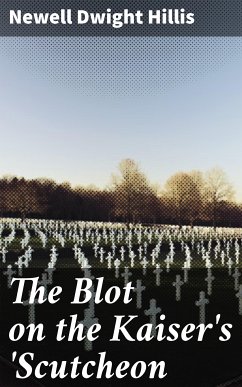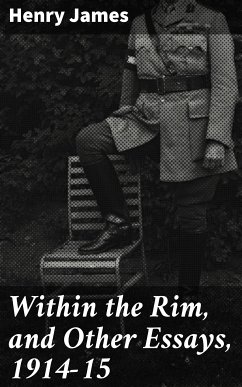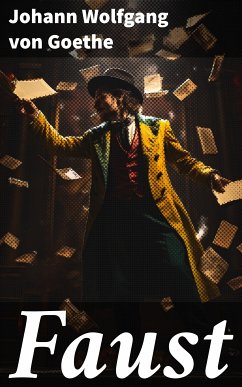
The Wrack of the Storm (eBook, ePUB)
Enriched edition. A Symbolist Voyage through Fate and Nature's Wrath
Kommentar: Ewing, Garrett / Redaktion: Good Press / Übersetzer: Teixeira De Mattos, Alexander
Versandkostenfrei!
Sofort per Download lieferbar
1,99 €
inkl. MwSt.
Weitere Ausgaben:

PAYBACK Punkte
0 °P sammeln!
In "The Wrack of the Storm," Maurice Maeterlinck weaves a poetic exploration of human existence amidst the tumultuous forces of nature and fate. The book is marked by Maeterlinck's characteristic use of symbolism and rich imagery, revealing the inner struggles of his characters who confront life's inevitable uncertainties. With elements of existential philosophy, the narrative unfolds with deep emotional resonance, urging readers to contemplate their place within a chaotic world, intertwined with the beauty of nature's relentless power. Maeterlinck's evocative prose stylistically represents th...
In "The Wrack of the Storm," Maurice Maeterlinck weaves a poetic exploration of human existence amidst the tumultuous forces of nature and fate. The book is marked by Maeterlinck's characteristic use of symbolism and rich imagery, revealing the inner struggles of his characters who confront life's inevitable uncertainties. With elements of existential philosophy, the narrative unfolds with deep emotional resonance, urging readers to contemplate their place within a chaotic world, intertwined with the beauty of nature's relentless power. Maeterlinck's evocative prose stylistically represents the Symbolist movement, engendering an atmosphere that invites introspection and emotional engagement. Maurice Maeterlinck, a luminary of Belgian literature and a Nobel Laureate in Literature, cultivated a profound understanding of the human condition through his experiences in a changing Europe. His philosophical inclinations and interest in the metaphysical shaped his vision, making "The Wrack of the Storm" not just a literary endeavor but a personal exploration of struggle and resilience. Maeterlinck's ability to marry the metaphysical with the corporeal reflects his unique perspective shaped by his background in Symbolism and his own existential inquiries. This thought-provoking work is highly recommended for readers interested in the intersection of nature and human emotion. "The Wrack of the Storm" offers invaluable insights into perseverance against the backdrop of chaos, making it a poignant read for those who seek depth in literature and wish to delve into the complexities of the human experience. In this enriched edition, we have carefully created added value for your reading experience: - A succinct Introduction situates the work's timeless appeal and themes. - The Synopsis outlines the central plot, highlighting key developments without spoiling critical twists. - A detailed Historical Context immerses you in the era's events and influences that shaped the writing. - An Author Biography reveals milestones in the author's life, illuminating the personal insights behind the text. - A thorough Analysis dissects symbols, motifs, and character arcs to unearth underlying meanings. - Reflection questions prompt you to engage personally with the work's messages, connecting them to modern life. - Hand-picked Memorable Quotes shine a spotlight on moments of literary brilliance. - Interactive footnotes clarify unusual references, historical allusions, and archaic phrases for an effortless, more informed read.
Dieser Download kann aus rechtlichen Gründen nur mit Rechnungsadresse in A, B, BG, CY, CZ, D, DK, EW, FIN, F, GR, H, IRL, I, LT, L, LR, M, NL, PL, P, R, S, SLO, SK ausgeliefert werden.













